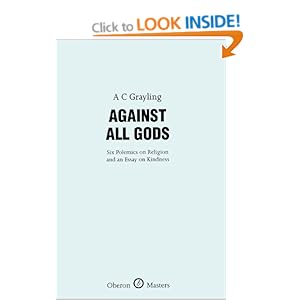"I like/prefer this story more than others" seems to be the essence of Air's position. Which is probably why there doesn't seem to be a straightforward answer to why "I believe religious claim A (with no evidence) to be true, but religious claim B (also with no evidence) to be false".
That said, that's basically the same as saying "I like Star Wars more, but I respect some of the themes presented in Star Trek as well". Which is fine and all, but that would technically make "Trekkies" religious followers now
Of course, if the majority of religious believers actually treated religious claims that way, then atheists wouldn't have any issues (hell, atheists would no longer exist), just like how "Atrekkiests" don't exist. And no one would make a big deal of someone saying "those claims don't have any evidence for them, therefore they are incorrect".
In reality, atheists are often be accused of being "close-minded" or "not knowing the true meaning of religion" when they simply point out that a religious belief isn't true. Of course, the utility or "niceness" of a belief is a completely separate discussion (and could even be seen as a distraction) from whether that belief is actually true. I often find these two discussions get muddled together when religious claims are defended. It might even be considered an implicit admission that the belief in question isn't actually true.
While I talked about why I believe what I do, I never shied away from the fact that I could be wrong. But I think your post is fine for the most part. I also posted in other threads and even earlier why I believe (if I remember correctly).
im curious, has anyone found god or religion through this thread? or has it been only the other way around, some people giving up their faith..?
Most people who post back here talk about how they lost their faith.



